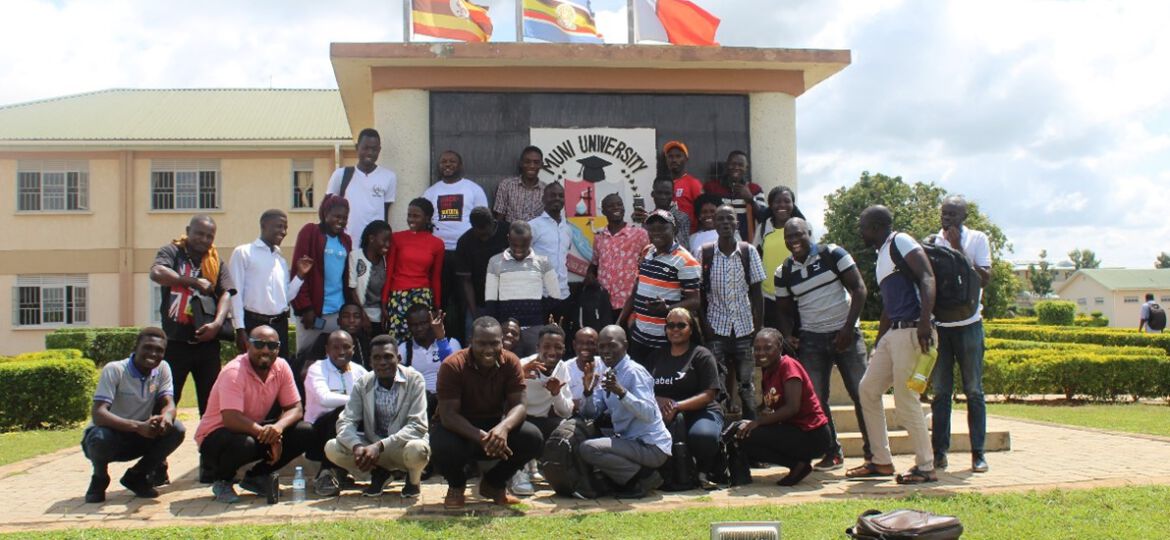
Digital and Entrepreneurship Skilling Academy pilot in UganDA
According to the IFC and World Bank study about Digital Skills in sub-Saharan Africa in 2021, over 230 million jobs in sub-Saharan Africa will require digital skills by 2030, resulting in almost 650 million training opportunities. Also, according to entrepreneurship Uganda by Argidius, it is crystal clear that there are high levels of entrepreneurial activity in Uganda and a growing enterprise support ecosystem. Therefore, the AEDIB|NET project came at that opportune time when the youth and women from the refugee and host communities were hungry for the much need digital and entrepreneurship skills.
What started as a simple 48-hour hackathon did not end with giving out prizes and swag to the winners but was instead the grand start of the DES academy. Over 40 selected women and youths who exhibited enthusiasm and hunger for digital and entrepreneurship skills embarked on three weeks of phased DES academy training. Thanks to the white paper prepared by Digital Africa that clearly laid out the timelines, content, methodology and expected results. Also, Enabel in Uganda is forever grateful for the overwhelming support from the different ecosystem players. These include; Muni University Business incubation Centre, The Social Innovation Academy, Stanbic Business incubator, The Innovation Village, Hive Collab, Start hub, School of inspiration, Code Impact, Luova Tech, Qraft academy, Design hub, Motiv and the National ICT innovation hub.
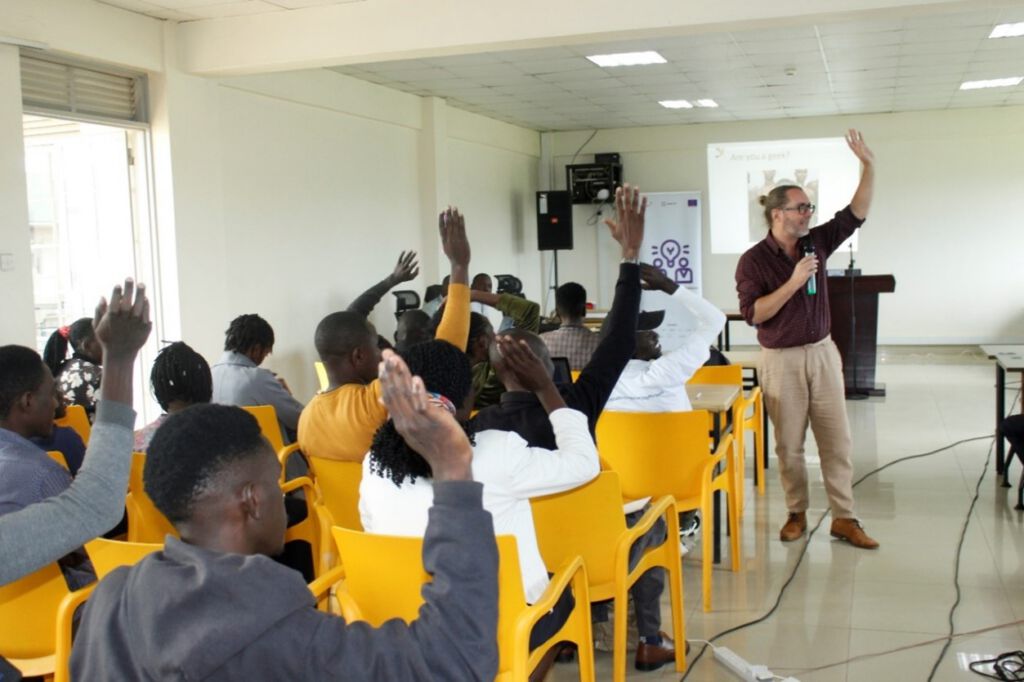
The first week of the DES academy was held in October from the 9th to the 15th at Muni University Business incubation Centre. During the week, over 60 participants were empowered with the soft skills required for digital transformation. They also benefited from the business growth skills provided by Muni Business Incubation Centre. Enabel, SINA, and Muni University facilitators took participants through this soft skills training. The training mainly focused on breaking the glass barrier, confidence building, mindset change and emotional intelligence. The participants could have the training for 4 hours (9-1PM) while the afternoon was reserved for business mentorship by Muni University Business Incubation Centre and group meetings to align and refine business models.
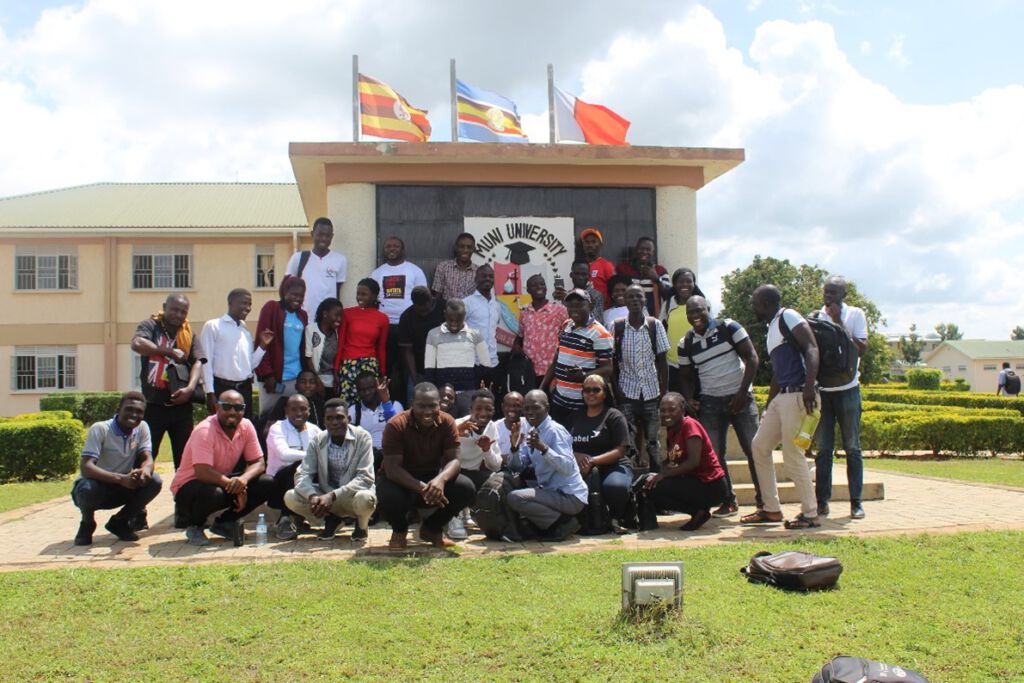
The second week commenced on the 7th and ended on the 11th of November 2022. This was a week for gaining practical skills. Skills include sales and marketing, data analysis, web development and community management. Five partners provided training support during this week. These included: Business incubator Muni, Code impact, Start hub Africa and Qraft academy. Participants were equipped with skills to help them in the next phase of building their businesses. Skills in marketing and sales enabled them to conduct market research for their products. At the same time, the data analysis knowledge helped them use the data gathered about the product. Some participants who are web development enthusiasts attempted to create their own web pages as a result of the introduction to the web development course.
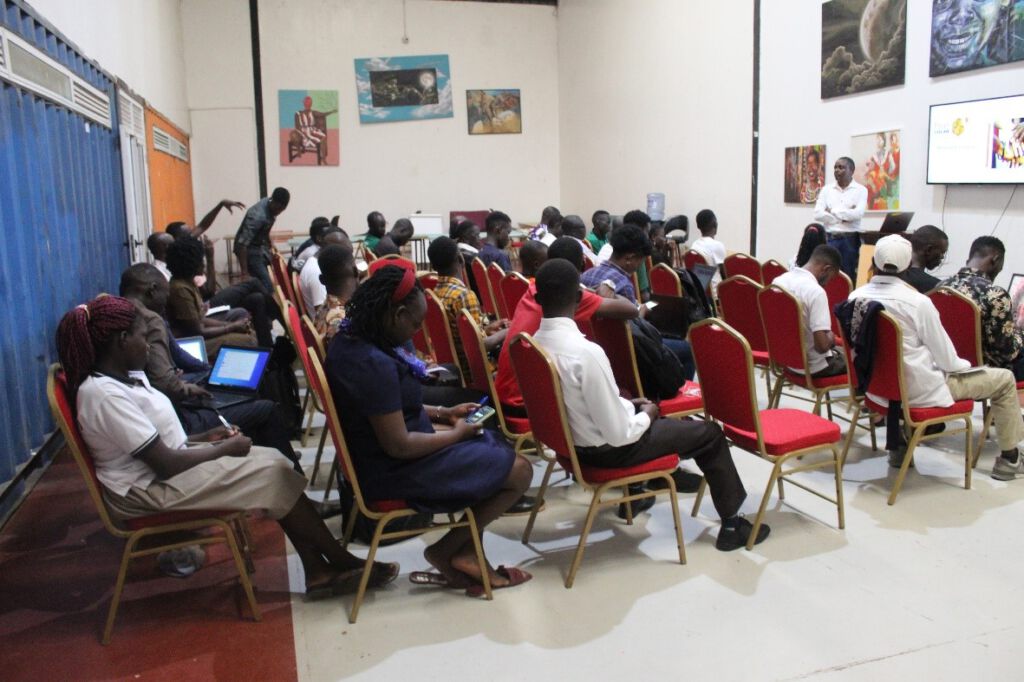
The DES academy’s last and final week was held in December from the 5th to the 9th. This marked the climax of the three weeks of phased training. This time, in addition to the DES planned lessons, the training was held in Kampala to conduct exposure visits with the participants, also known as the “Digital Safari”. The visits included visiting the 5 top hubs in Kampala and some incubation centres. These included: The innovation village, the national ICT innovation hub, Motiv, the Design hub and Hive Collab. In addition, participants had a chance to visit The Social Innovation Academy in Mpigi, one of the solid organisations helping the youths to become social innovators.
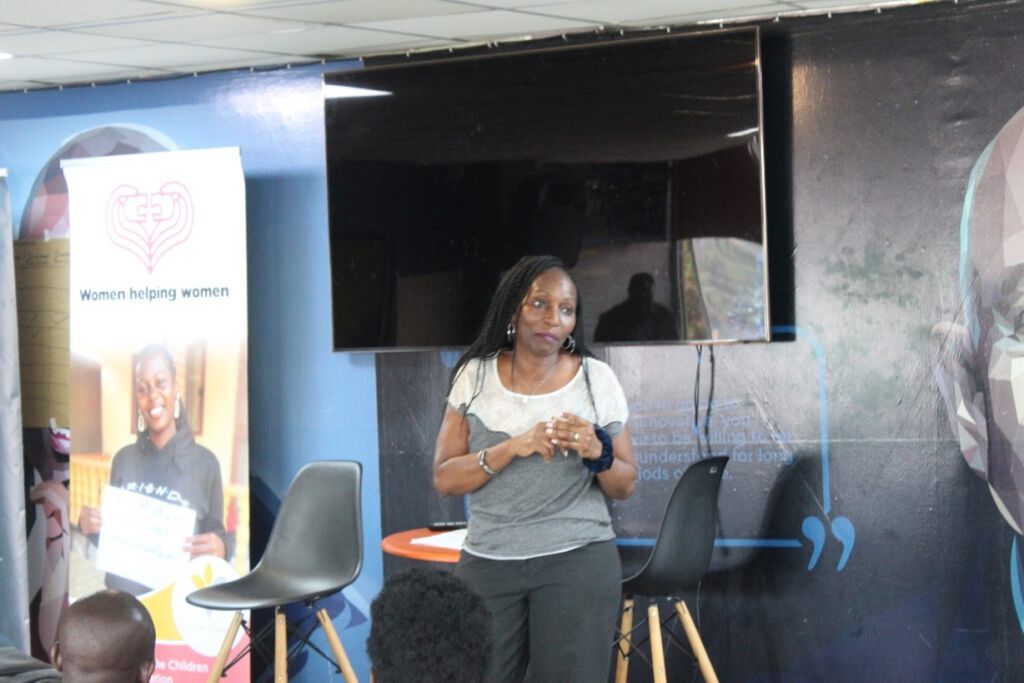
The participants also had an opportunity to listen to some of the sought-after entrepreneurs, business couches and mentors from the various hubs visited. For instance, participants were privileged to listen to Ms Elizabeth Ntege, the Chairperson Board of Directors ICT Association of Uganda. Elizabeth, who doubles as the founder of NFT, consults one of the great human resource recruitment companies in Uganda and East Africa. She shared her story of how she started a company with her only laptop and savings. She further encouraged participants to start with what they have instead of waiting for funding. Her story stuck to the participants’ hearts, especially females who promised to follow in her footsteps.
Enabel in Uganda appreciates the contribution of the various hubs, incubators, individuals, institutions and civil society organisations that contributed content design, facilitation of different sessions, and strategic support at no cost. The AEDIB|NET project is forever grateful.
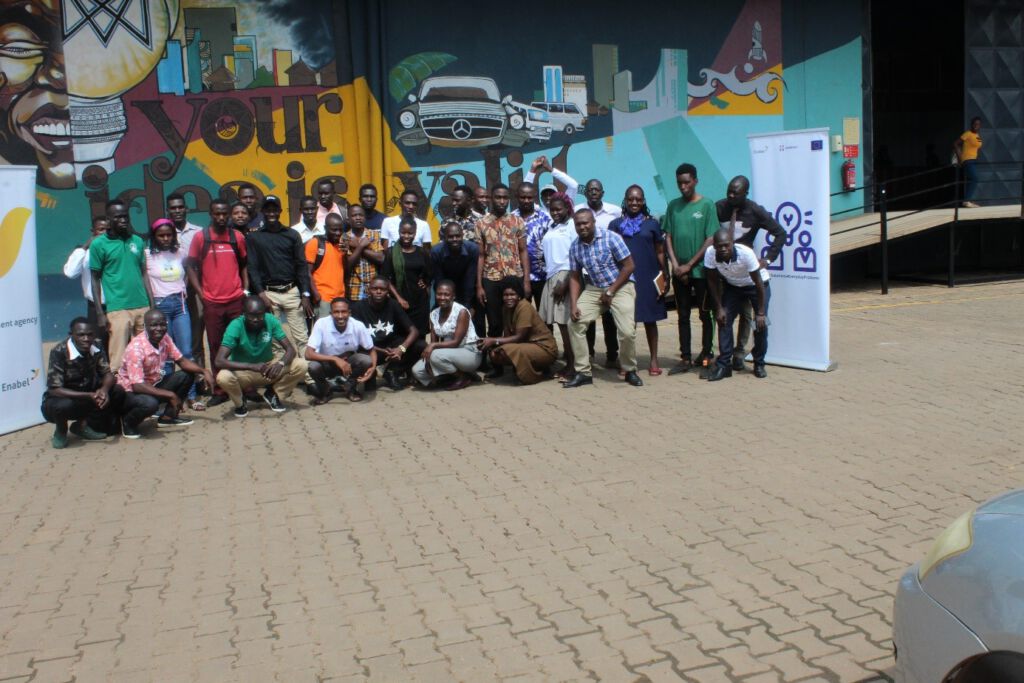
Written by: BWENGYE Anthony- Programme officer AEDIB|NET (Enabel)